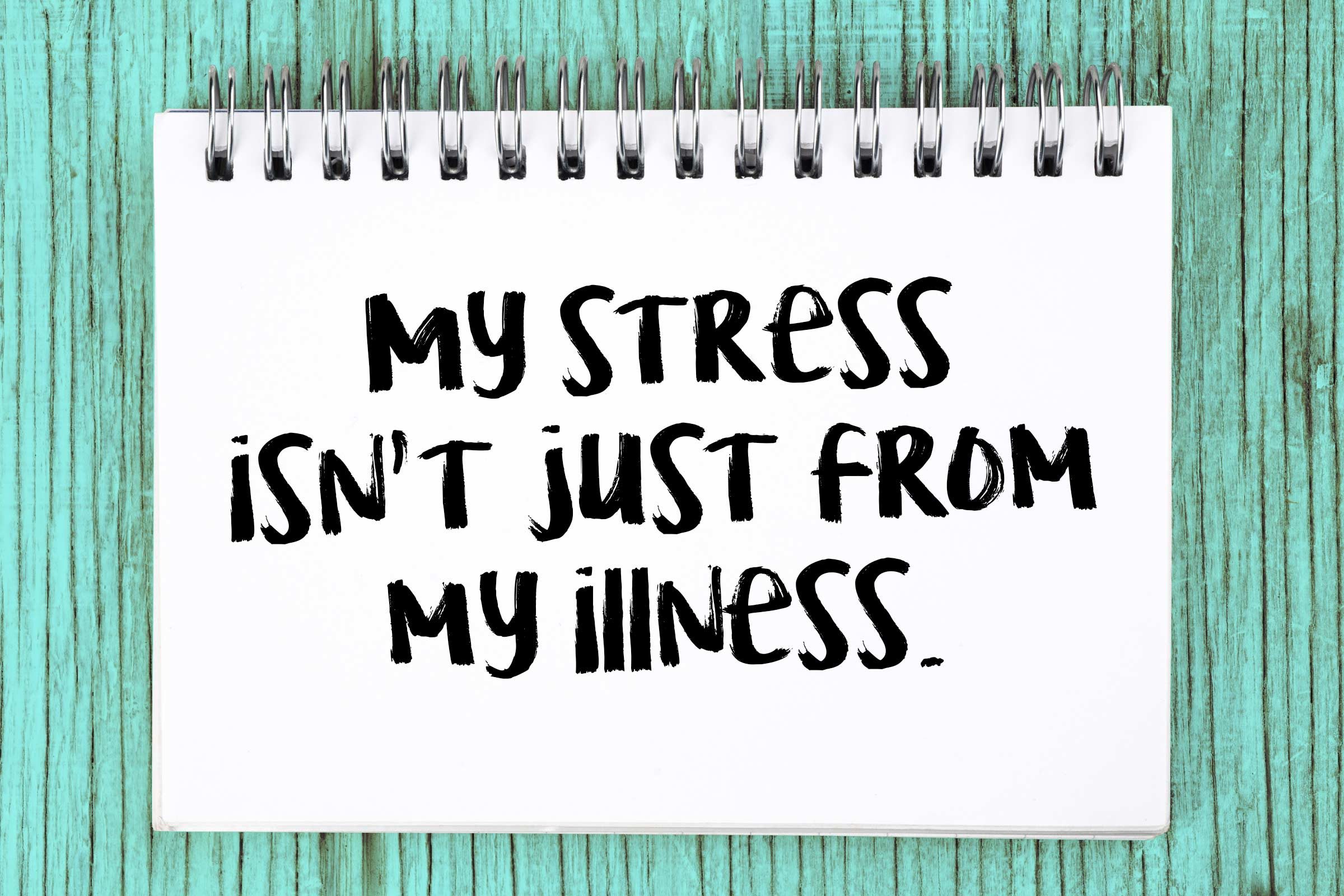
My stress isn’t just from my illness
“One of the misconceptions is where the stress is coming from,” says Monica Bryant, Esq., chief operating officer for nonprofit cancer survivorship organization Triage Cancer. “It’s not just the physical disease, it’s all these other things.” Treatment and the physical effects of cancer are just part of the pressure of dealing with a serious illness. Cancer survivors worry about taking time off work and the financial effects of that, plus they need to figure out how to take care of their families. (Don’t believe these cancer myths.)
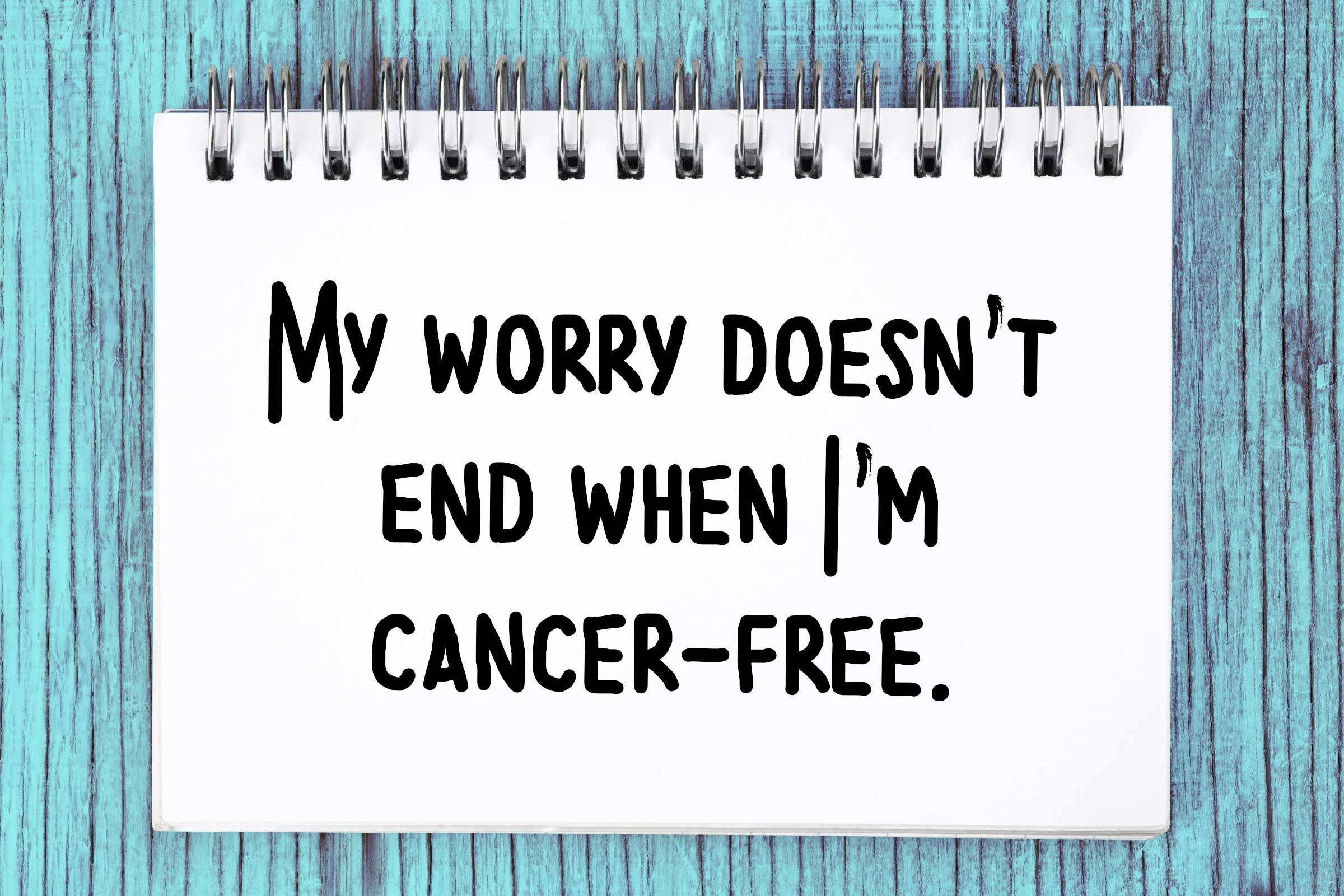
My worry doesn’t end when I’m cancer-free
Even after survivors are in remission, they are aware that the disease could return. “The fear that the cancer will come back is hanging over your head,” says Kevin Stein, PhD, vice president of the Behavioral Research Center for the American Cancer Society. “The task of dealing with that can be very distressing, and it’s a task every single cancer survivor needs to deal with.”

I don’t always know how to respond to “How can I help?”
Those living with cancer appreciate when their loved ones lend a hand, but asking what to do puts the burden on the patient to come up with something. “Instead of asking, ‘How can I help?’ just do it,” says Alison Mayer Sachs, MSW, CSW, OSW-C, president of the Association of Oncology Social Work and director of cancer support services at Eisenhower Lucy Curci Cancer Center in Rancho Mirage, California. Tell your friend you’ll pick up his or her kids from school or buy grocery staples when you’re at the store, suggests Sachs, who was diagnosed with lung cancer in 2009. (Read up on the most groundbreaking cancer research of this year.)
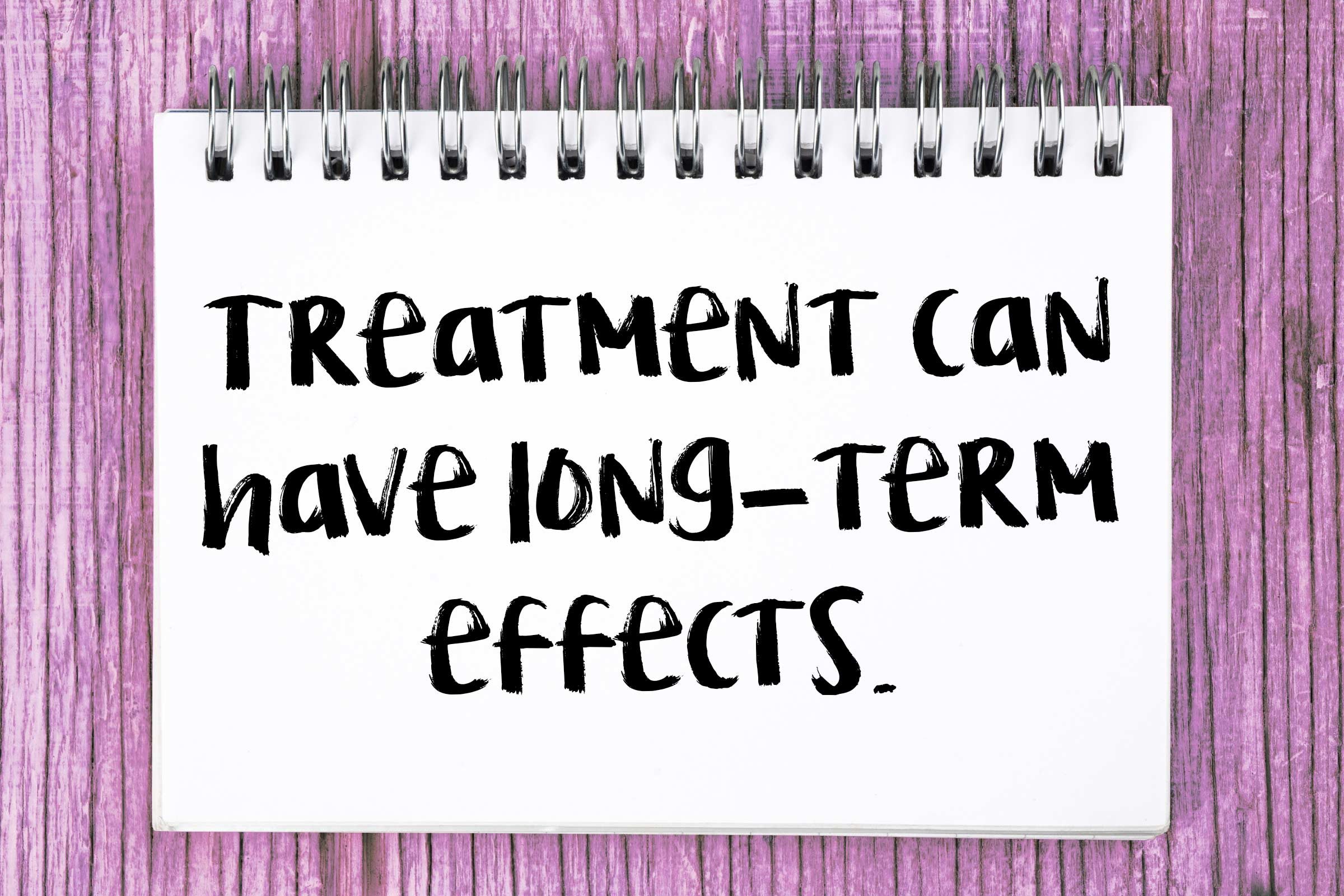
Treatment can have long-term effects
Long after those living with cancer are home from the hospital, they’ll continue dealing with emotional, physical, and psychological effects, Bryant says. “The long-term side effects of treatment are extensive. There’s fatigue and this concept of ‘chemo brain:’ cognitive issues, memory issues, trouble concentrating,” Bryant says. “More and more studies show it’s not just chemo that triggers this ‘chemo brain,’ but radiation and other treatments.” Treatment attacks healthy cells in addition to cancer, Stein says, and that damage can have effects months or years later, such as cardiovascular disease or even secondary cancers.
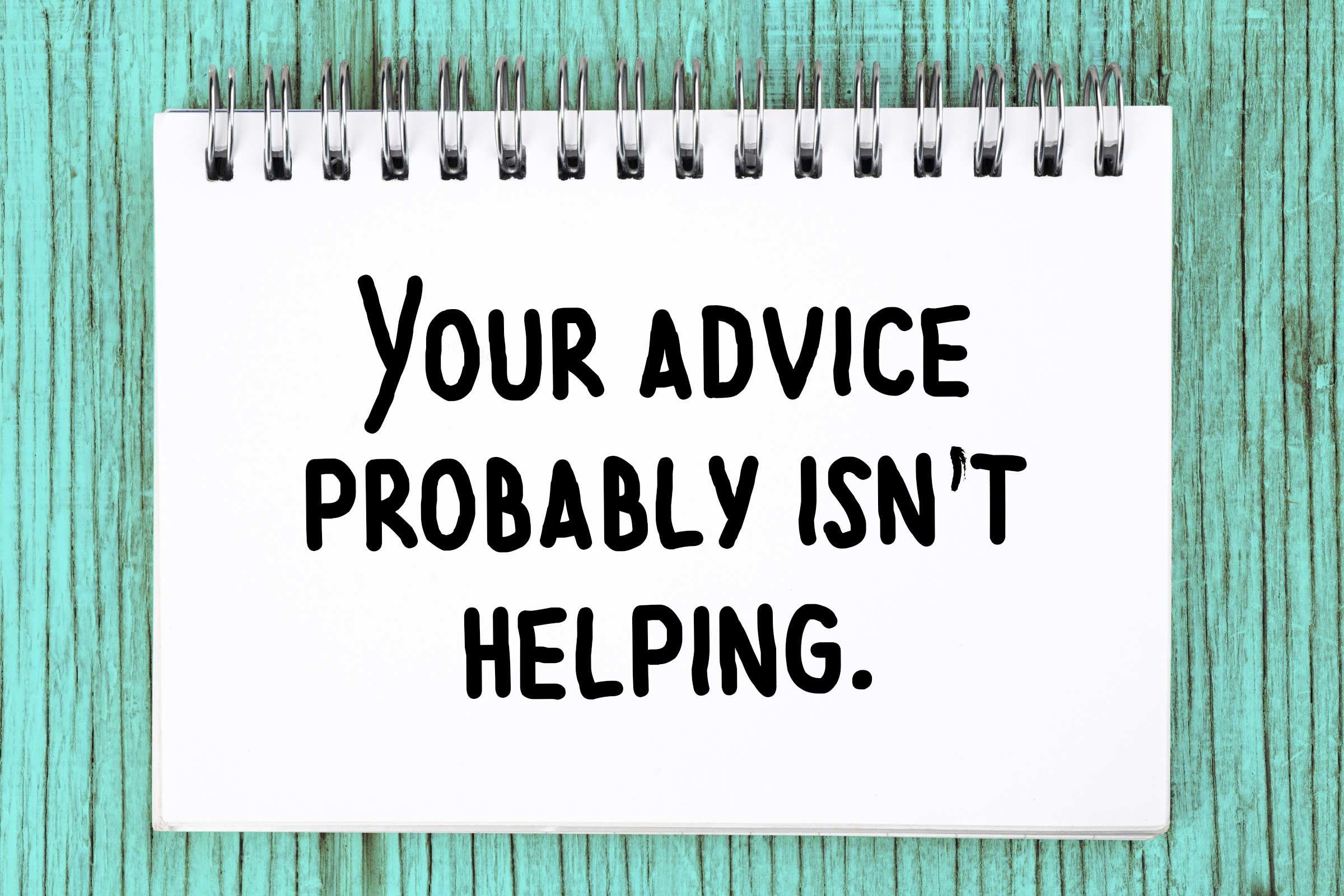
Your advice probably isn’t helping
“Cancer care is so personalized that your well-meaning advice about someone you knew doesn’t pertain to the person you’re talking about,” Sachs says. Unless you’ve been asked, hold back on offering suggestions. (Watch out for the cancer symptoms that men tend to ignore.)
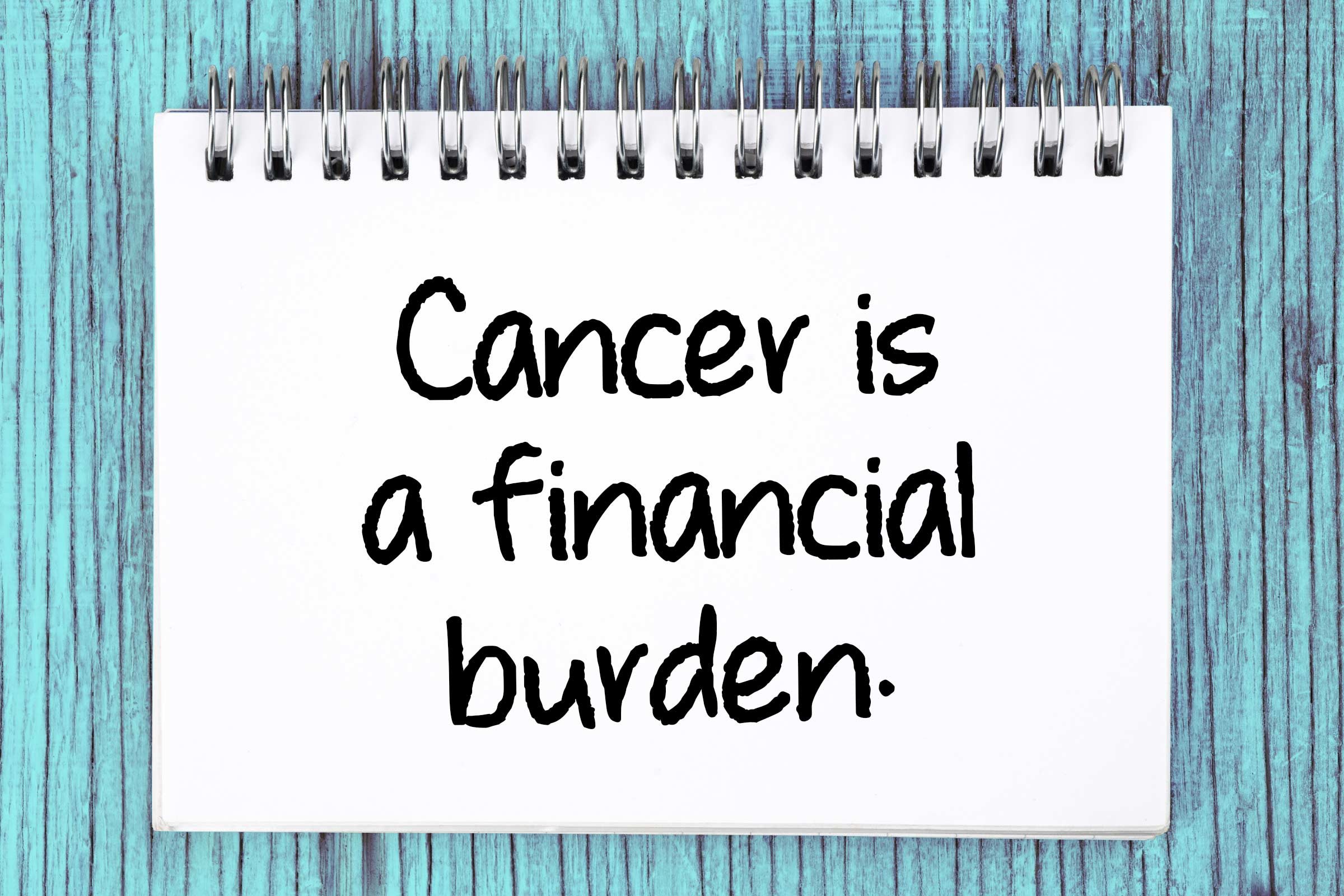
Cancer is a financial burden
Cancer treatment is expensive, and not all health insurance will cover enough to prevent a huge financial blow. Plus, going through treatment and recovery means taking at least some time off work. Losing money during the process doesn’t mean cancer survivors have been irresponsible with their money or didn’t go through the right steps, Bryant says. “The reality is that people who have insurance and savings accounts and did all the things they needed to do as responsible adults can still end up in a bad financial place,” she says.
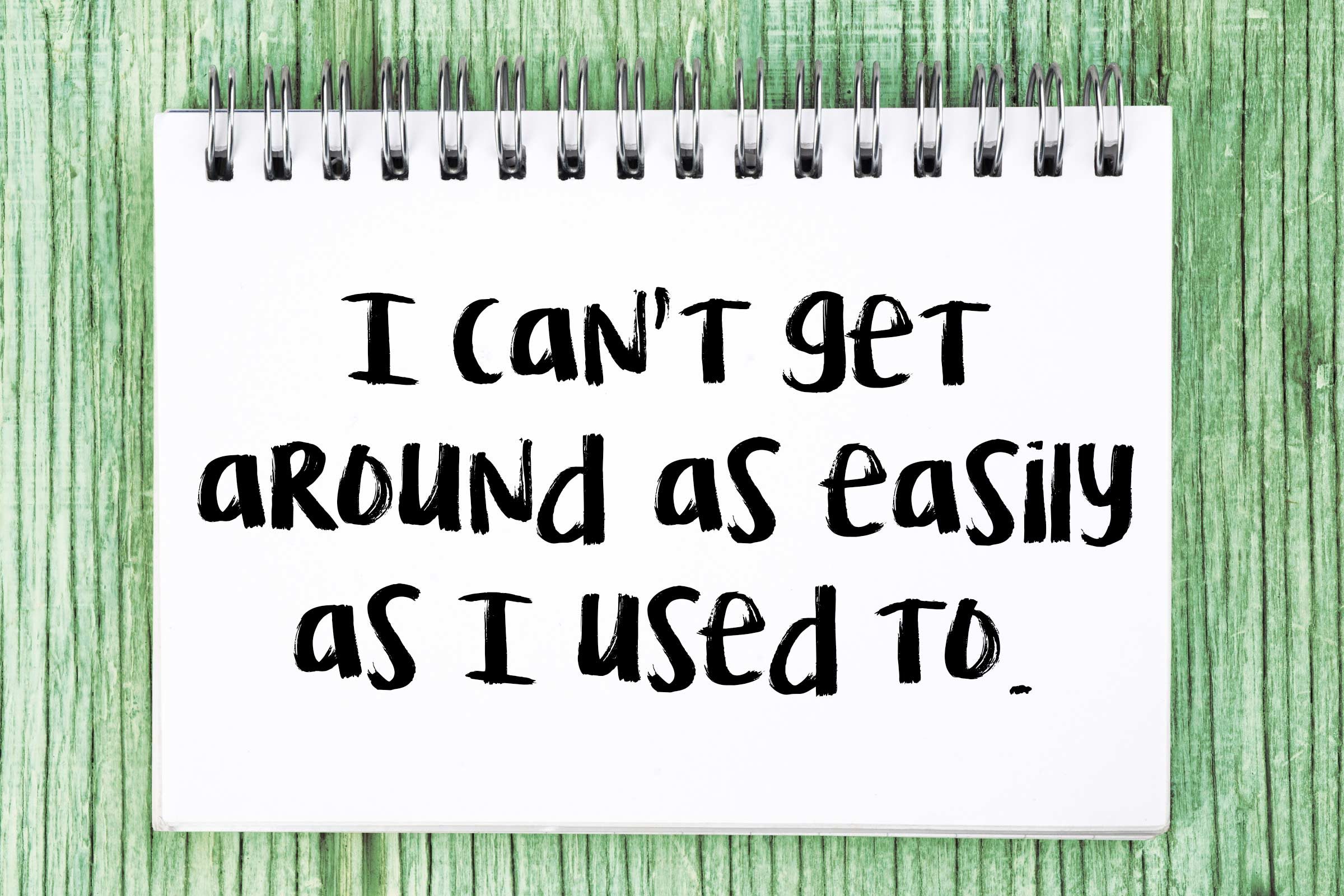
I can’t get around as easily as I used to
“If someone is too sick to get themselves to treatment, that adds a whole other level of stress and anxiety to what they’re dealing with,” Bryant says. Doctors appointments are usually during the day when others have work, so it can be hard to coordinate rides. Public transportation isn’t a great option for a person whose immune system is already compromised, Bryant says. Some programs like the American Cancer Society Road to Recovery offer rides, but finding transportation is still an added stress. This is what cancer doctors do to prevent cancer.
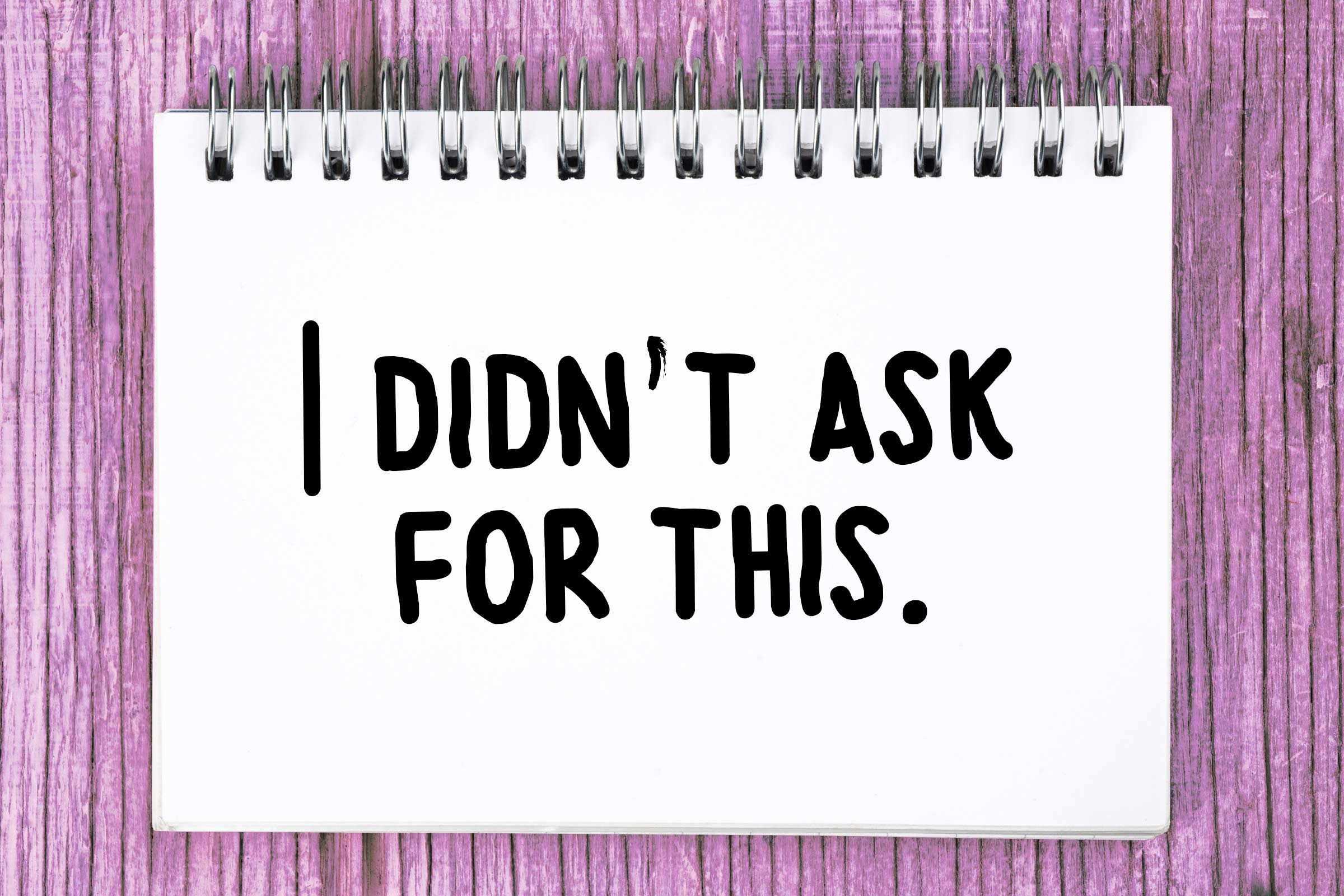
I didn’t ask for this
Blaming cancer on a person’s lifestyle is not being supportive. “Nine and a half times out of 10, the first thing people say when they hear I had lung cancer is ‘Did you smoke?’” Sachs says. “Why would you ask that?” It doesn’t matter what caused the cancer; what matters is that you show concern and understanding to the survivor.
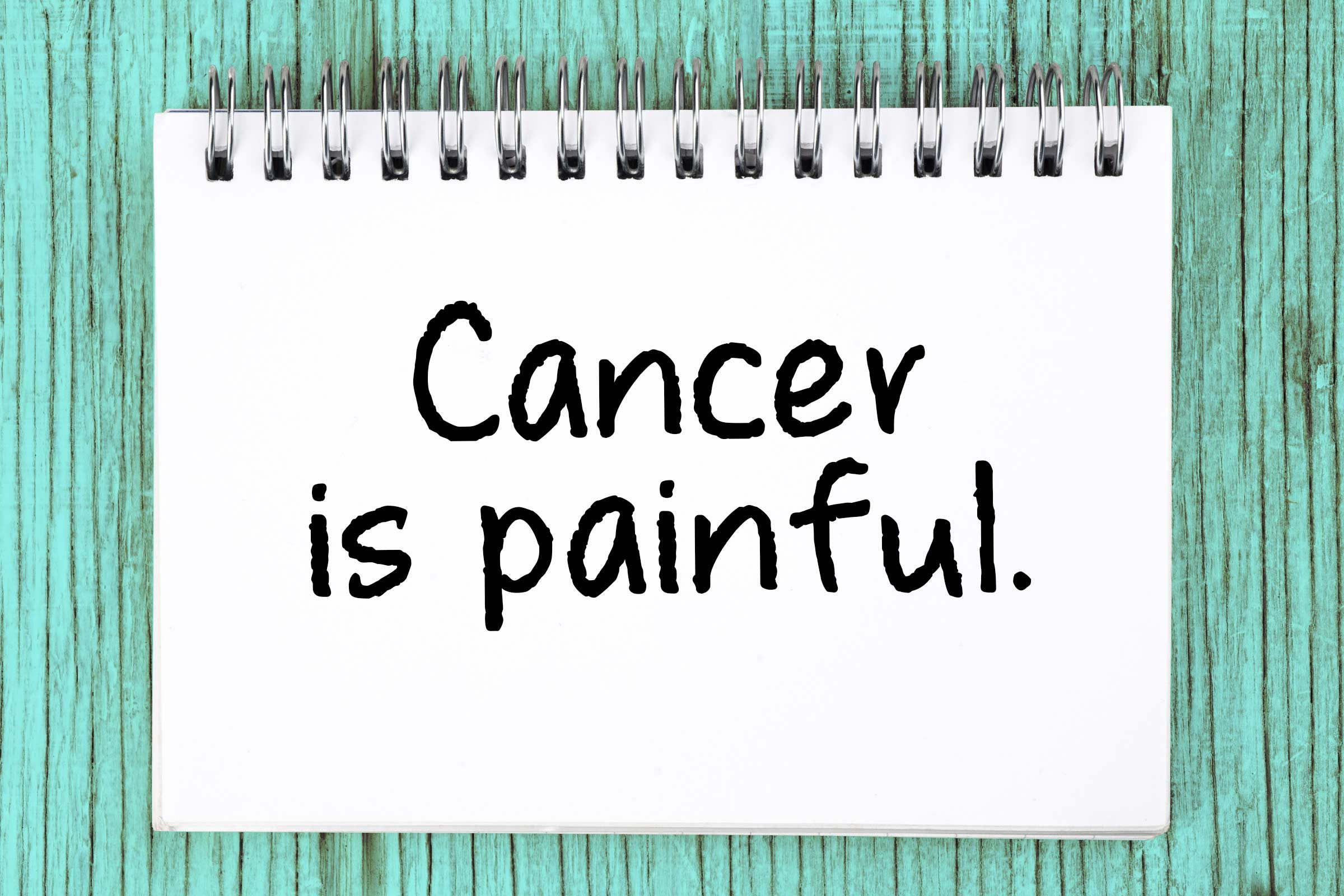
Cancer is painful
Tumors growing pressing against body parts are just part of the pain. Most of the pain is related to radiation or chemotherapy, which can cause mouth sores or damage stomach lining, Stein says.
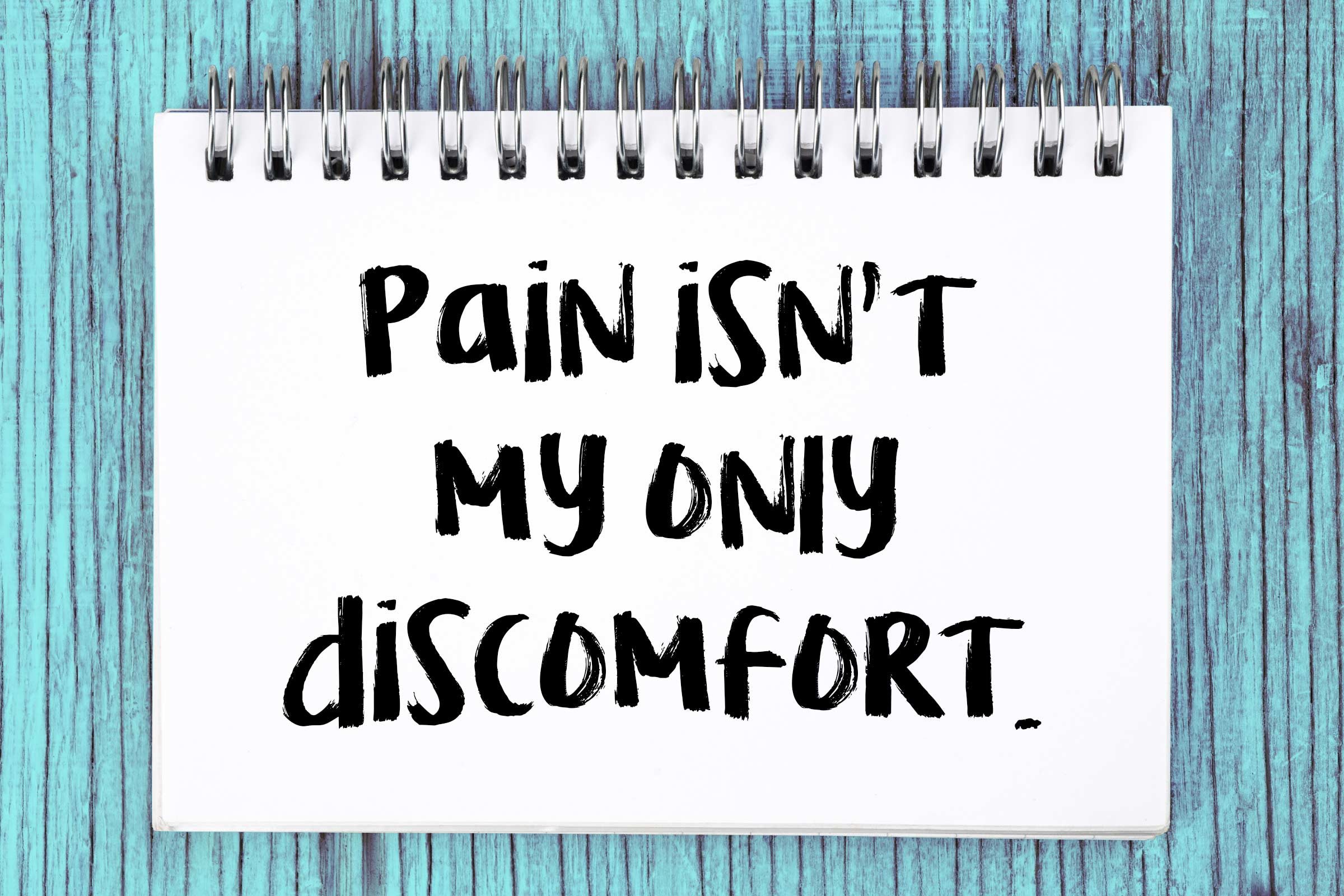
But pain isn’t my only discomfort
“Pain is the most feared and the most distressing, but it is not the most prevalent,” Stein says. Cancer survivors also need to deal with fatigue, which, unlike pain, can’t be treated with medication. These foods are proven to help prevent cancer.
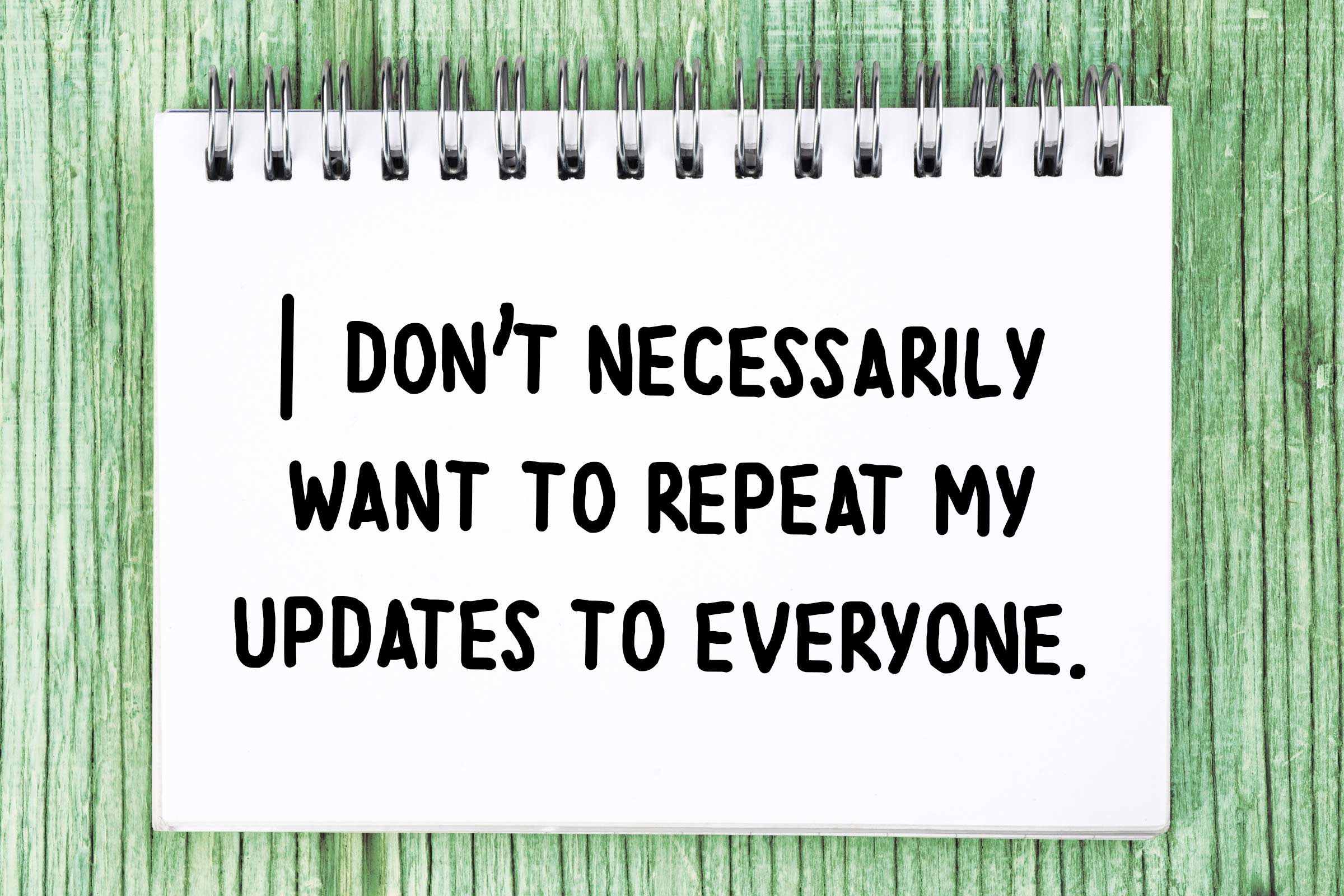
I don’t necessarily want to repeat my updates to everyone
Telling every treatment update to every single person can be exhausting. Some cancer survivors like to have a point person whom other loved ones can get details from, while others might use an online system that sends emails when they post password-protected updates, Bryant says.
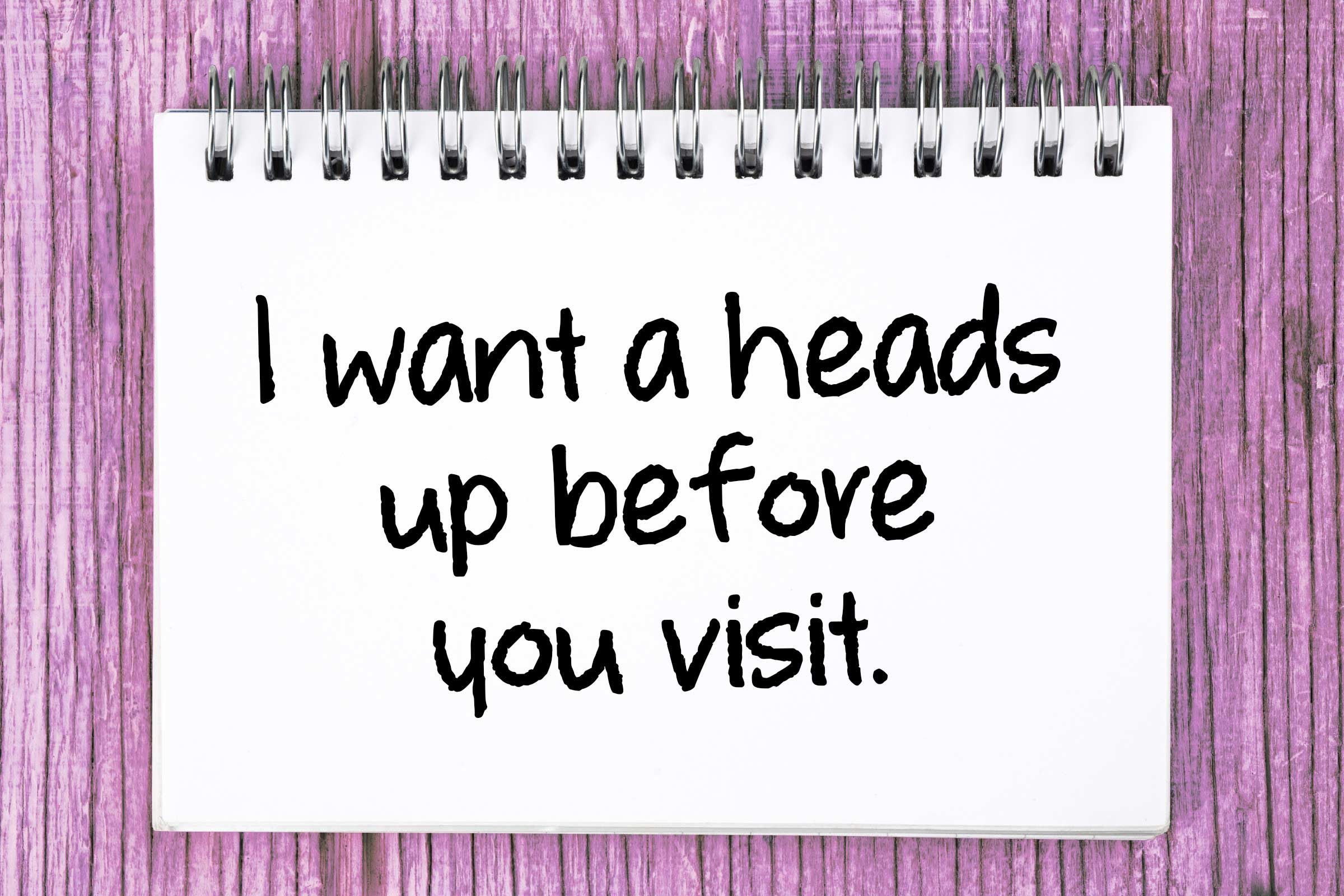
I want a heads up before you visit
Your surprise drop-in might not be appreciated if a cancer survivor isn’t feeling up for guests, Sachs says. Call ahead to check if it’s a good time to come, or ask when a good visiting time would be, she says.
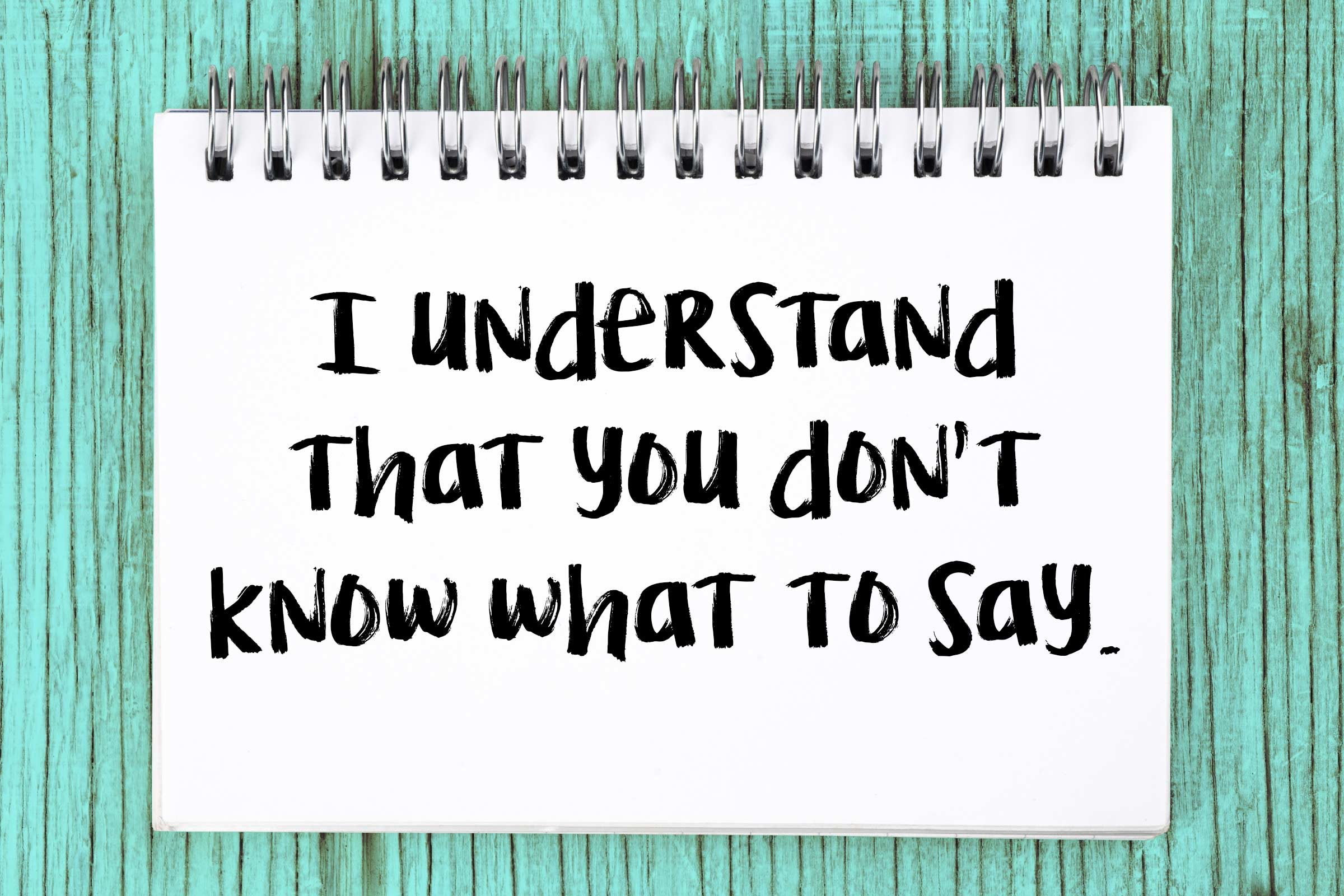
I understand that you don’t know what to say
“What I often hear from cancer patients is, ‘No one wants to talk to me about cancer’ or ‘They don’t know what to say’ or ‘I don’t hear from friends anymore,’” Sachs says. “There’s this fear of saying the wrong thing.” Show your concern—but not pity—and let your loved one know you’re not sure what to say. Offer your support, and ask if they want to talk about their cancer experience before starting the conversation, she says.
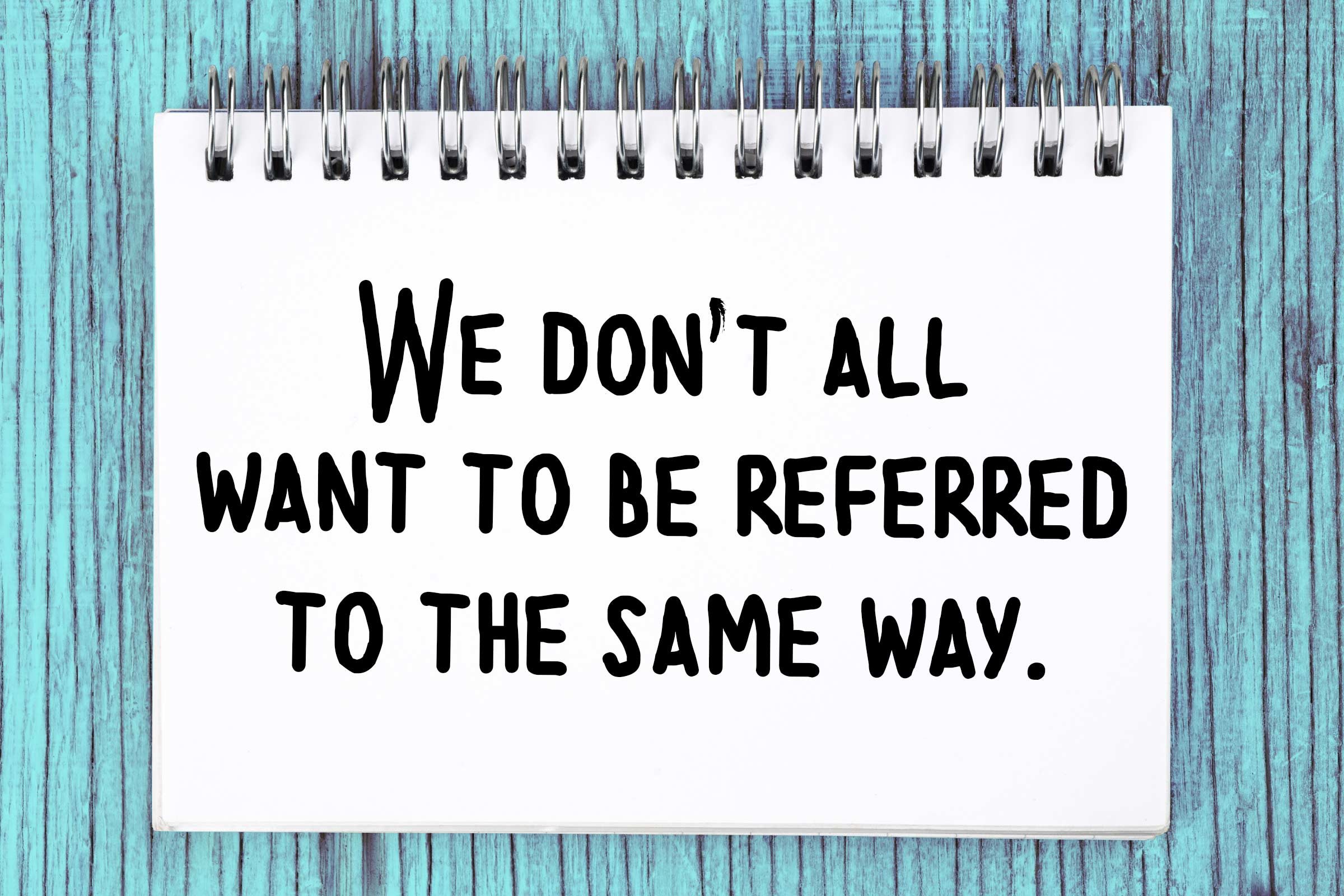
We don’t all want to be referred to the same way
Words like “patient” or “victim” can hold negative connotations that someone living with cancer doesn’t relate to, but phrases like “survivor” or “living with cancer” are usually more accepted, Bryant says. “We’re not victims and don’t want to be treated like victims,” Sachs says. Some people who have been cancer-free for years might not identify as a survivor, so try to understand how the individual is comfortable being addressed, Stein says. (Read up on these reassuring things scientist wish you knew about cancer.)
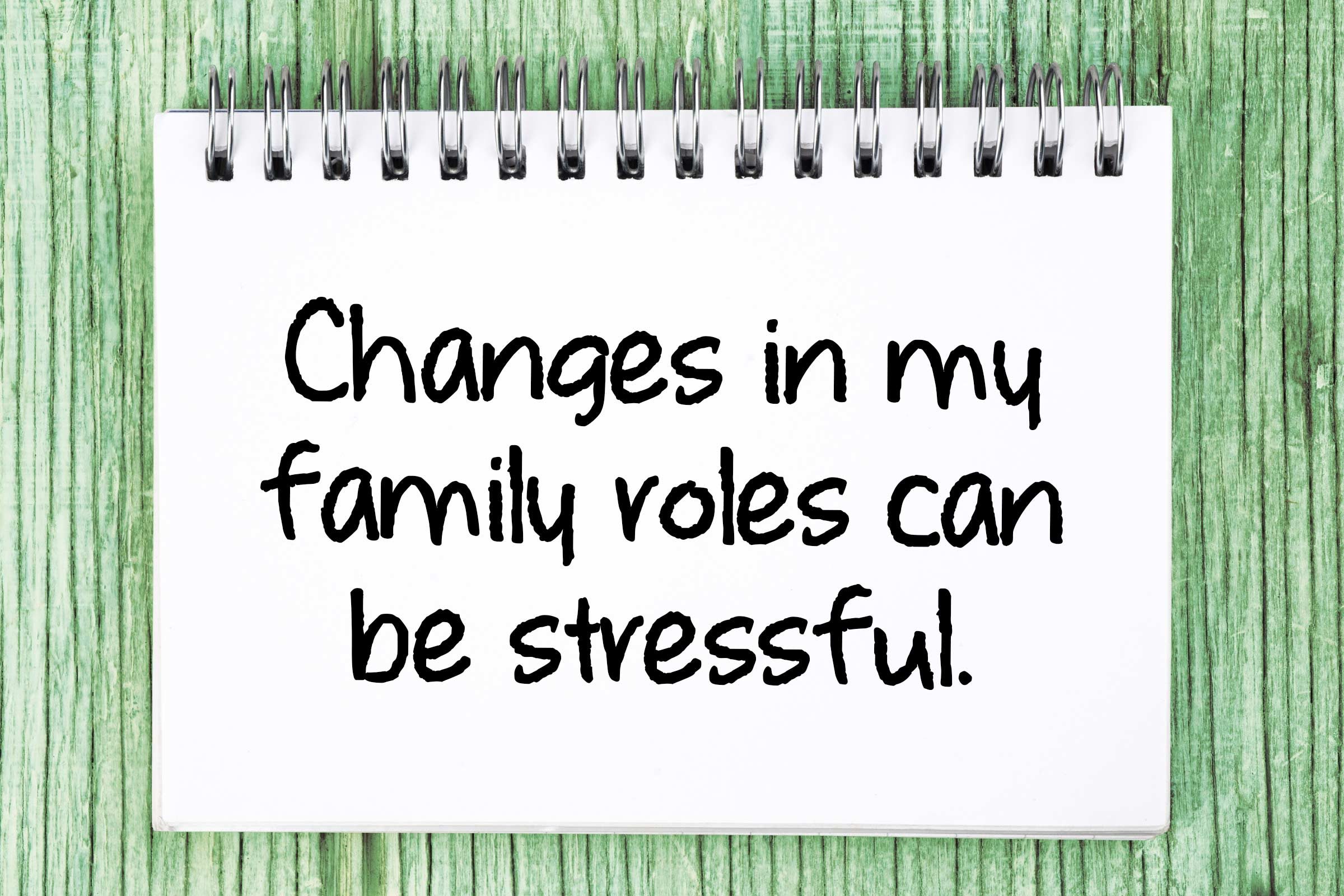
Changes in my family roles can be stressful
If a cancer survivor used to be the family’s main breadwinner, a spouse might have to take on more out-of-home responsibilities to make up for the reduced income. Or if the person with cancer used to keep the home organized and can’t fulfill that role anymore, someone else will need to take care of those responsibilities. These family role changes can add extra stress to coping with cancer. “Things they were formerly able to do, they might not be able to do anymore,” Stein says. “When someone else has to pick up that slack, that’s a stressor.”
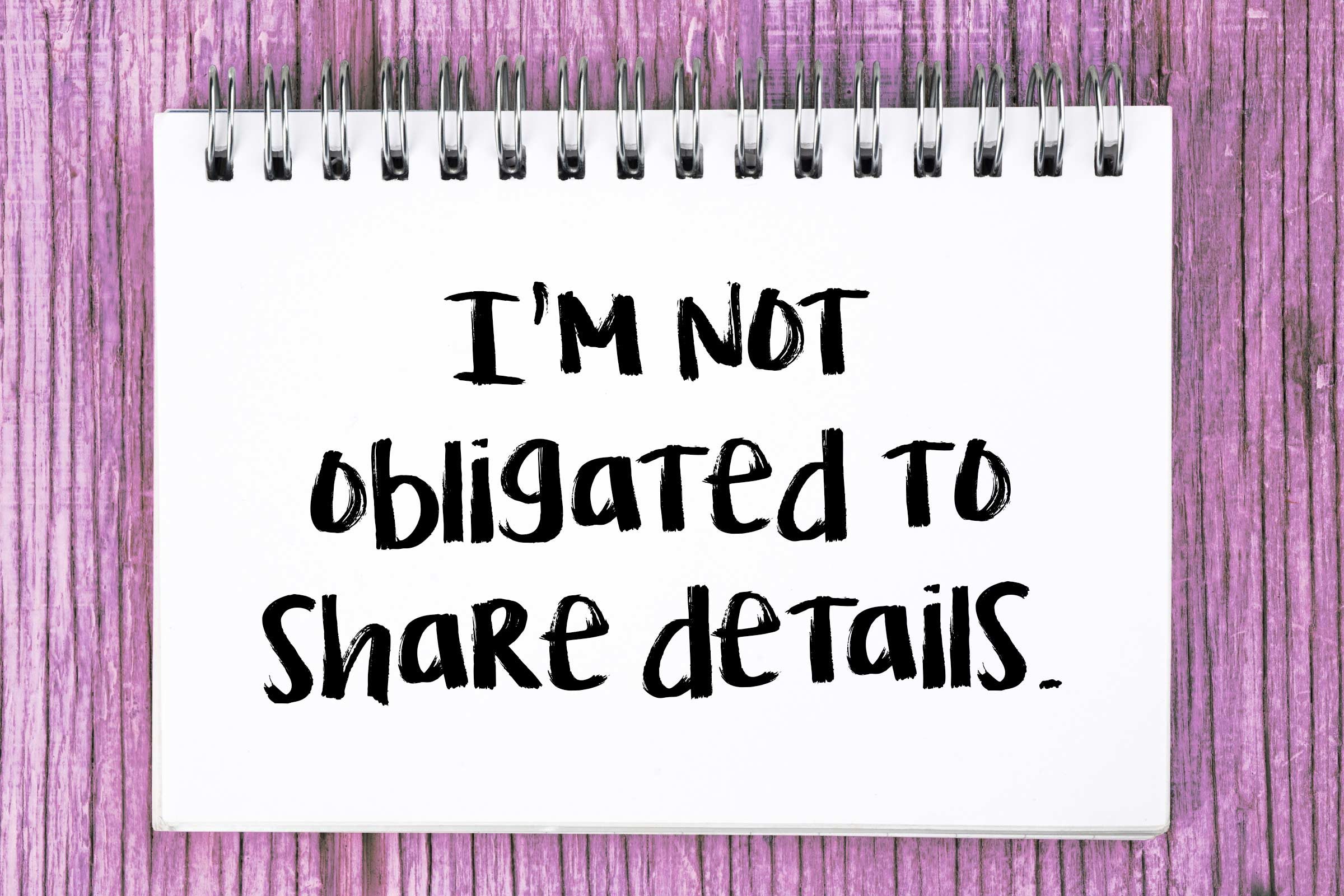
I’m not obligated to share details
By law, those with cancer do not need to share their diagnosis in their workplace or personal lives, Bryant says. Disclosing that information could have long-term impacts that the survivor wants to avoid, so don’t press for details. To help them feel better, share these hopeful cancer statistics that everyone should know.